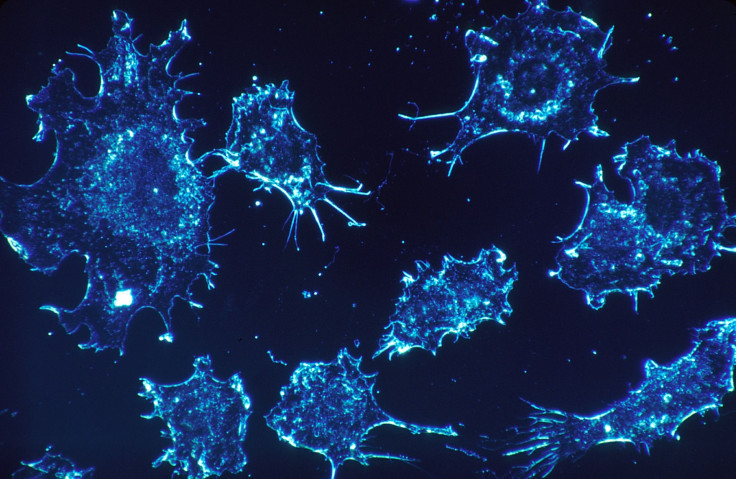Collagen Produced By Tumor Cells Could Be Used In Cancer Therapy, Researchers Say
KEY POINTS
- Cancer cells produce a unique type of collagen
- The collagen protects cells from immune responses
- It is found in different forms of cancers like pancreatic and colon cancers
Cancer research is a never-ending endeavor and we still don't have enough weapons to fight against the deadly disease. This new study on tumor cells could offer a breakthrough in cancer treatment.
The study, published in the journal Cancer Cell, showed cancer cells produce a unique form of collagen that protects them from immune responses. Researchers believe targeting this collagen could help them develop more specific treatments against the disease.
"Cancer cells make an atypical collagen to create their own protective extracellular matrix that helps their proliferation and their ability to survive and repel T cells. It also changes the microbiome in a way that helps them thrive," said study lead author Raghu Kalluri, chair of Cancer Biology and director of operations for the James P. Allison Institute, Texas. "Uncovering and understanding this unique adaptation can help us target more specific treatments to combat these effects."
Andy Vermaut shares: Cancer cells make unique form of collagen, protecting them from immune response: Cancer cells produce small amounts of their own form of collagen, creating a unique… https://t.co/XxlFNDDhM6 Thank you. #AndyVermautLovesScience #RespectScience #RespectLife
— Andy Vermaut (@AndyVermaut) July 22, 2022
The research team studied mouse models of pancreatic cancer, with COL1a1 – a gene found only in cancer cells – being deleted. They found that the absence of this cancer-specific collagen gene resulted in the loss of proliferation and reprogramming of the tumor microbiome.
This, in turn, led to reduced immunosuppression by way of increased t-cell infiltration and termination of cancer cells.
"This discovery illustrates the importance of mouse models, as it was only when we noticed a difference in their survival that we found this abnormal collagen variant existed and was produced specifically by the cancer cells," Kalluri noted. Due to the small amount being produced by the cells, the cancer collagen would have gone unnoticed without the help of specialized tools, he said.
Though the researchers mainly focused on pancreatic cancer, Kalluri noted that the unique collagen is also seen in other forms such as lung and colon cancers. This might pave way for a unified, broad approach to cancer treatment.
"No other cell in the normal human body makes this unique collagen, so it offers tremendous potential for the development of highly specific therapies that may improve patient responses to treatment," Kalluri added.

© Copyright IBTimes 2024. All rights reserved.




















